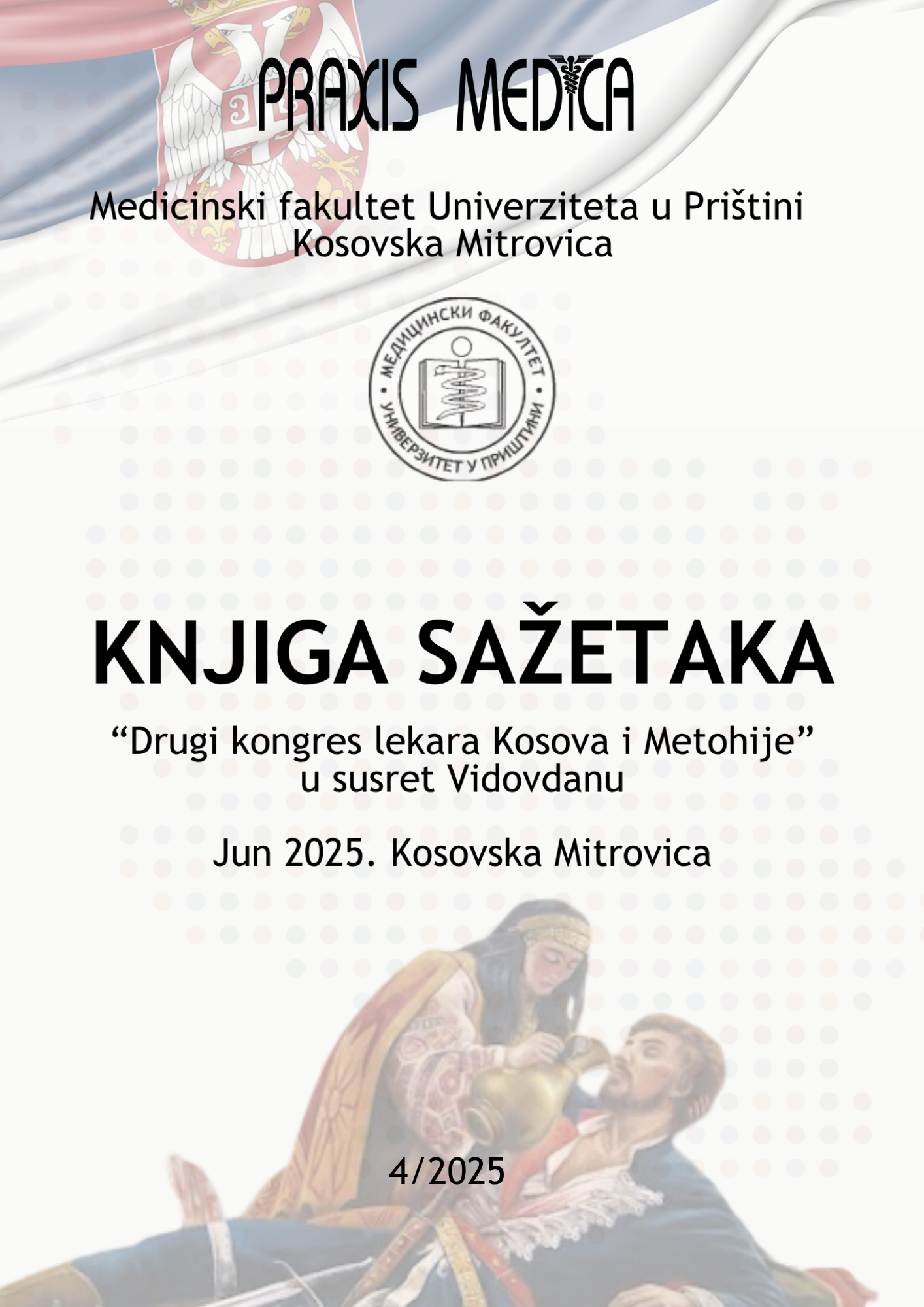
More articles from Volume 31, Issue 1, 2003
EFFECTS OF GLUCAGON ON HEMODINAMIC VARIABLES IN CONDITIONS ON BLOCADE BETA ADRENORECEPTORS
IMPORTANCE OF AFP AND CEA DETERMINATION IN EXPERIMENTALY INDUCED GLIOMA
ANTIPYRETICAL EFFECT OF PARSLEY EXTRACTS (Petroselinum crispum L.) AT MICE
NEUROLOGICAL DEVELOPMENT OF HIGH-RISK NEWBORN INFANTS IN THE FIRST THREE YEARS OF LIFE
ESSENTIAL CHARACTERISTICS OF REPEATED MYOCARDIAL INFARCTION
Citations

0
SOMETHING MORE ABOUT CANCER
Pediatrics Clinic, Faculty of Medicine, University of Priština - Kosovska Mitrovica , Mitrovica , Kosovo
Published: 01.01.2003.
Volume 31, Issue 1 (2003)
pp. 91-92;
Abstract
Until sixties of twenty centuries, it was little now abaot cancer. It was well-know than chemicals , radiation, onko viruses, can to provoke cancer.Untill seventies it was clear than cancer is not infection or inborn sicness.Than eighties discovering onko-gens (gens normal indebted for growth of cell who is mute. Understad is than cancer cell could be continue growth, and they must have onko gen ON and cancer supresor OFF. Discover so and fenomena of apoptosissuicide cell what something wrong begin.For the time of nineties thay are discover reasons of apoptosis. The main one is TP53 gen on short part of hromosoma 17, with 1179 letter. It's understand than cancer begining with muting gens what is reason of growth, continuing with muting gens what suprim growing and finish with fold of last defence muting gen TP53.In therapy of cancer is searcing for agenc who will stimulate apoptosis.Big step what genetics do on understanding cancer give us reall chance to beat cancer.
Keywords
References
Citation
Copyright

This work is licensed under a Creative Commons Attribution-NonCommercial-ShareAlike 4.0 International License.
Article metrics
The statements, opinions and data contained in the journal are solely those of the individual authors and contributors and not of the publisher and the editor(s). We stay neutral with regard to jurisdictional claims in published maps and institutional affiliations.






